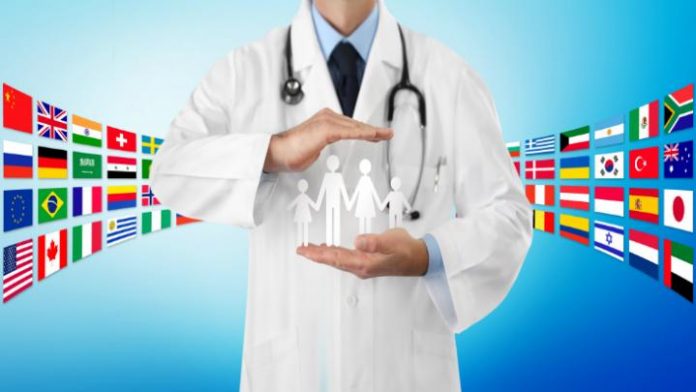Personalised medicine; stem cell and nano scale medicine; gene therapy and digital health will transform healthcare by 2040, according to a new report, ‘Future Health, Care and Wellbeing’ by futurologist Ray Hammond, commissioned by healthcare and insurance group Allianz Partners
The ‘Future Health, Care and Wellbeing’ report predicts that by 2040 specialist surgeons will use remote robots to operate on patients in different continents; babies will have their DNA sequenced before they are even born; and patients will be able to generate new blood inside their own bodies without the need for a blood donor.
Healthcare revolutions
The report looks at how medical science and healthcare delivery will be transformed globally in the next 20 years. The five key trends that collectively will revolutionise healthcare are predicted to be:
- Personalised medicine
- Stem cell medicine
- Nano-scale medicine
- Gene therapy and editing
- Digital health
By 2040:
- Health information from traditional annual physical check-ups and other tests previously only available in a surgery or lab will be replaced by data from sensors on/around our ‘smart’ bodies (including in our clothing and, eventually, skin and blood). This will be immediately accessible to us, in real time.
- A new field of predictive medical data mining will provide early warnings of physiological trouble ahead or indications of disease as it develops. Physicians will have 24/7 real-time reports of their patients’ wellbeing and will be alerted to any change in patients’ data that requires urgent attention
- Stem-cell medicine will be a powerful tool in mainstream medicine. Replacement human organs for transplant will be grown on demand from stem cells in the lab with minimal risk of rejection
- Nano-medicine (in its infancy in 2019) may eventually outperform all other branches of medical science, as scientists create designer drugs that are far more powerful than today’s drugs
- Artificial Intelligence (AI) chatbots equipped with deep learning algorithms could relieve emergency room personnel of tending to large numbers of walk-in patients with non-emergencies.
Healthcare insurance individual tailoring
The report also says that the business model of healthcare insurance will need to change. Currently, one of the primary purposes of insurance is that a person is covered for the unexpected. In the future, health issues will be identified, and often addressed at birth. Health will no longer be an unknown quantity.
Insurance premiums, which pay for health events that might happen, may evolve into a fund, which is there to pay for treatment following unexpected accidents, and to access the latest technology to treat conditions, which cannot be dealt with at birth. Health insurance plans will be completely tailored to each person.
Digital tools, AI and data
As the number of deaths due to unexpected or incurable illnesses decreases, populations grow and people live longer, the sheer number of people in the world will bring its own challenges in terms of making sure that everyone can get prompt access to care. This is where digital tools, robotics and artificial intelligence can really help.
There will also be a significant shift with regards to where health information sits. Now it is mostly with doctors and hospitals. In the future, people will have much greater access to their own health data via in-body/device technology.
Navigating international healthcare
Future insurance and healthcare customers will need support interpreting that information and navigating the international healthcare system. They will also want data to back up decisions about which consultants they see and where to locate them. The role of insurers will be to use expertise and global networks to make that process as easy as possible, while giving customers access to the right care at the best prices.








 ©2024 All rights reserved LaingBuisson
©2024 All rights reserved LaingBuisson 


